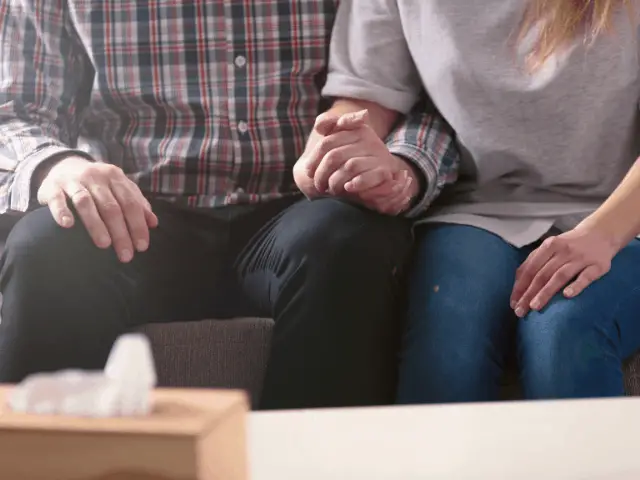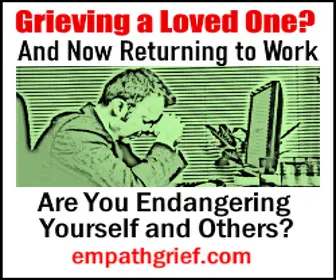For most of us, death and funerals are a very surreal experience and don’t, thankfully, happen every day. Above all else, we don’t want to cause offense or make people feel uncomfortable when we refer to someone who has died.
You should refer to the dead person by their given name, either a first name, surname or vocative nouns (e.g. Mum, Grandpa) depending on how you addressed them in life. Professional staff internally call them the deceased or decedent and ‘your loved one’ or Mr/Mrs Smith in front of their family.
In Western culture, there are no real taboos when it comes to using the same name as you would when the person is alive. However, there are a number of things you really don’t want to say and do when you are at a funeral or around grieving people.

How to mention the deceased at a funeral
Although we would normally want to avoid upsetting topics of conversation, such as the death of a friend or relative, it’s hard to do at a funeral. That’s the entire reason you are there.
It’s ok to talk about the dead and it’s actually a really healthy thing to do in terms of getting over grief. Of course, you want to be sensitive and never use terms that are disrespectful.
Referring to the dead
If the person who died was a friend and you are talking to their family member, you can refer to the deceased by their name or vocative nouns.
For example:
“I was so sorry to hear about Bob”
or
“I was so sorry to hear about your brother“
If the person who died was older than you and you never used to address them by their name, use the honorific you would have used while they were alive.
“Mrs. Smith will be greatly missed”
or
“Professor Smith was an inspiration to us all”
If the person who has died is your direct relative, then just call them Mom, Dad or Auntie Linda like you would normally.
What you might hear from funeral staff
Anyone that deals with a dead person on a professional basis will have terminology that they use among themselves, a bit like jargon, and terms they use in front of the dead person’s family.
In professional terms, the dead body will be referred to as ‘the deceased‘ or ‘the decedent‘. Funeral staff may also refer to the dead body as if they were a paying customer by calling them Mr. Smith or Mrs. Smith.
In front of the family they will normally refer to the body in formal terms by using an honorific prefix or simply say “Your loved one” or “Your husband” etc.
What is a nice way to say “died”?

Nobody likes to talk about death and it’s always best to use a euphemism when you can. But don’t use something too irreverent!
Referring to someone as ‘kicking the bucket’ at the funeral won’t get you any brownie points!
The best advice is to stick to the classics as you can never go wrong with them.
- Passed away
- Resting in peace
- in heaven
- in a better place
- looking down at us all
- passed to the other side
Just remember, it’s ok to use the words ‘dead’, ‘died’, and ‘gone’. Grieving is all about reaching the final of the 5 stages of grief, acceptance. You aren’t doing anyone any favors by totally ignoring the fact that someone is no longer with us …ah, even I’m doing it now!
What do you tell people about a death?
When telling someone about a personal death you only need to give them the relevant details, explaining what you require. Apart from with close friends, you shouldn’t go into detail about how the person died and you don’t need to share your feelings if you don’t want. Private details can remain so.
Of course, what you say depends on who you are talking about and to whom.
Breaking the news to family members
When a family member dies you should share the news as soon as possible as your relatives will want to begin mourning and support each other.
It’s best to do this in person if possible, but sometimes you have to use technology as a last resort. I found out about my grandparent’s passing by text and email as I was out of the country at the time. It was still good to be told immediately.
Try not to sugarcoat it but you don’t have to give any gory details at first. Just say something like “Auntie Linda passed away last night in her sleep” or ” “Bob died in hospital this morning”
Telling friends
After you’ve told your family, you probably want the support of your best friends. You can tell them in much the same way as telling family, but you don’t need to worry about it hitting as hard seeing that they weren’t related to you.
What you should do is ask for any help and support that you do want. Now is the time to allow your emotions to show rather than bottling them up. If you just need a shoulder to cry on, your best buddy is the one to ask.
Informing work
If there has been a death in the family, you may want time off work to go to the funeral. The US doesn’t have very good labor laws when it comes to this (see the link above for more details) and you need to ask as soon as possible.
Most bosses will be sympathetic, but only when it doesn’t get in the way of business. So, make sure you have all the information they will need in order to give you the required time off to attend the funeral.
What do you say to a grieving friend?

If your friend has recently lost a relative or another friend it can be quite difficult to know what to say. This is especially true if you have never been in the same situation yourself.
The most important thing to do is to make it clear that you are there for them if they need you. This can be done in many different ways from giving them a distraction during the stress of planning a funeral or giving them an opportunity to open up about their loss.
It’s important for you to acknowledge the death and not to try and avoid the topic unless they specifically ask you to. In which case, make it very clear that you are ready to listen to them if they ever want to open up.
If you suspect that a friend is still grieving after several months, they may be deeply depressed and this can significantly affect their life. If you can’t help them talk things through, I recommend you help them find a grief counselor. You can find my recommendation for an online service here.
Above all else, just be the same friend to them that you were before and don’t change your behavior towards them.





